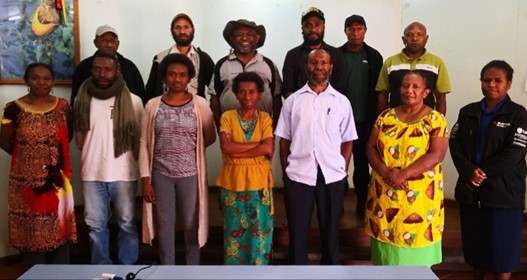Engaging industry in nature conservation: case studies from leading companies
A new report compiling case studies from several multinational companies presents initiatives going beyond addressing biodiversity impacts on site.
Resulting from a workshop convened by IUCN and Anglo American in Montreal, Canada, this report documents 28 case studies from Anglo American, BHP, bp, ExxonMobil, Newmont, Solvay, Shell, Teck, TotalEnergies and Vale. These case studies showcase actions that go beyond addressing residual negative impacts on site.
The report presents concrete examples of how industry can contribute to conservation and restoration goals and support the halt of nature loss in their non-operational lands and seas. It further emphasises the importance of an integrated approach, one that involves collaboration among stakeholders including governments, civil society and local communities.
“The case studies clearly demonstrate the business case for actions above and beyond mitigating impact. They showcase the valuable contributions and positive impact that can be made in the wider land and seascapes, within the countries and regions in which we operate,” states Warwick Mostert, Principal Biodiversity at Anglo American.
Current efforts to reduce impacts on nature on site have not been sufficient to tackle the alarming rate of biodiversity loss. Industry has an opportunity to play a role in addressing impacts, first following strict regulatory or other requirements, and then by working to achieve No Net Loss or Net Positive Impact.
“In recent years, there has been a notable paradigm shift in how companies approach nature, with an increasing recognition that they must now strive not only to mitigate negative impacts on site, but also to positively contribute to holistic and integrated conservation goals – in this case at the land and seascape level’, said Stephen Edwards, co-lead editor and former IUCN Senior Programme Manager, Enterprise and Investment Team.
Target 15 of the Kunming-Montreal Global Biodiversity Framework highlights the critical role that industry can play in halting and reversing biodiversity loss. There is a growing realisation that companies have potential to effect positive change above and beyond impact mitigation on site, in the realm of nature conservation and restoration.
‘This Kunming Montreal Biodiversity Framework, along with the proactive stance and commitment of influential business leaders, stands as a clear testament to future increased ambition to address biodiversity loss and start to deliver positive outcomes,” added Mr Edwards.
Find out more about these actions in the report funded by Anglo American and available here.



